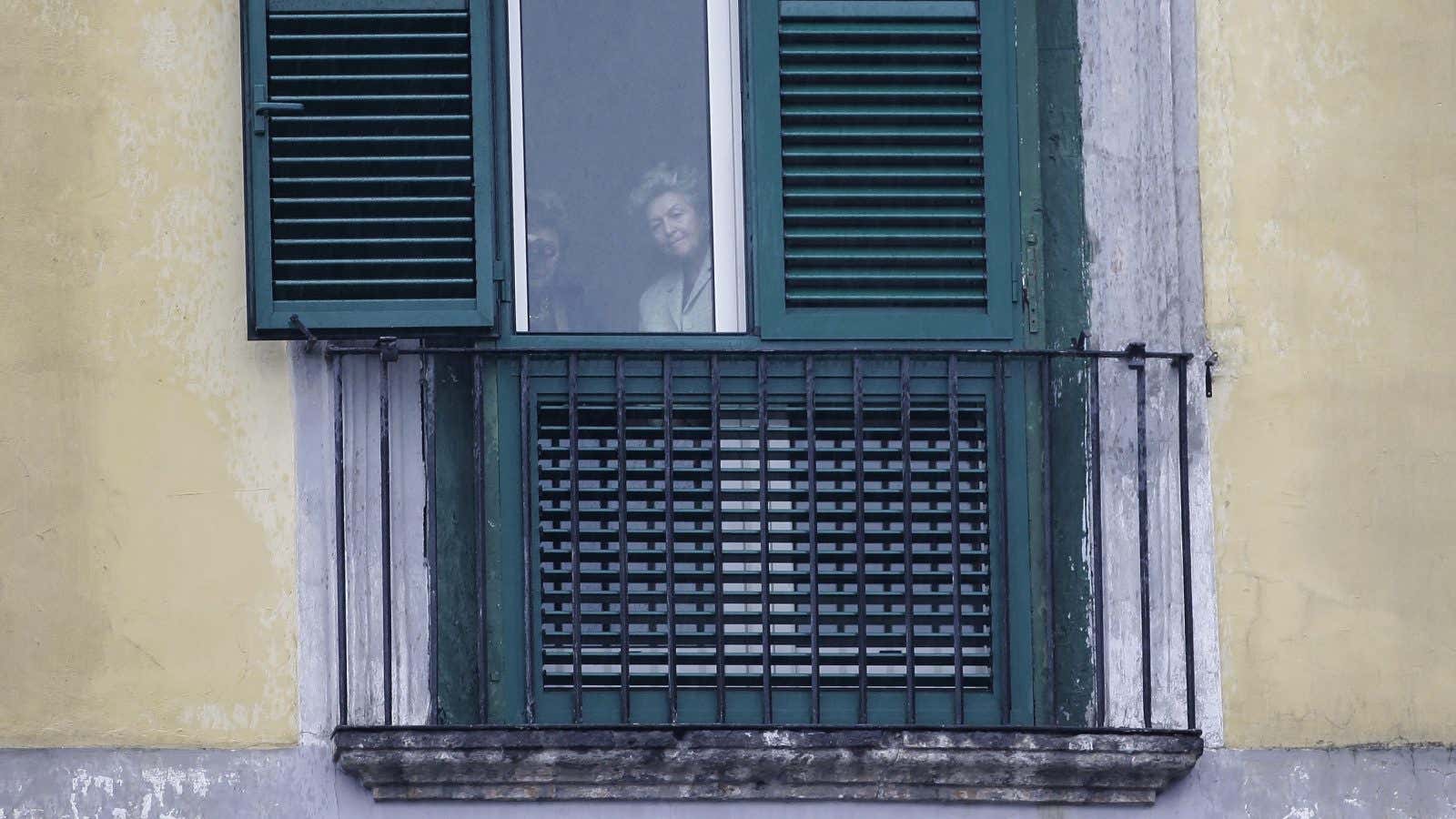**Spoiler alert: I’m going to talk about the plot of one of Elena Ferrante’s novels. Disclaimer: I’m not going to pretend I’ve read them all.**
The best moment in My Brilliant Friend, the first of Elena Ferrante’s Neapolitan novel quartet, comes in the closing paragraphs. Lila—highly intelligent, fierce, rebellious—has just got married. She thinks it’s given her the power to escape the trap of poverty and patriarchy in which she’s fought her way to adulthood. And then: a twist, a lurching moment when she—and we—realize that she has not escaped at all. If anything, she’s trapped far more firmly than before.
She’s just said “I do,” but finds herself in a situation that she didn’t consent to.
Until this week, the true identity of the author of the Neapolitan novels (Elena Ferrante is a pseudonym) was a secret. It’s almost definitely been revealed—without confirmation from the author herself, or her publisher—via the investigation of Italian journalist Claudio Gatti.
The backlash has been angry. Gatti has defended his unmasking of Ferrante as the ordinary work of a journalist, and an inevitable consequence of Ferrante’s success and fame, but his critics have questioned why a writer of fiction should not be allowed to continue her work unbothered by the scrutiny that becoming a public figure entails.
Stig Abell, editor of the Times Literary Supplement, goes a step further. He says that the New York Review of Books shouldn’t have published a piece revealing the identity of an author who had so clearly expressed the wish not to be exposed. He writes:
I, too, would have been uneasy about the gender politics of all this. Ferrante has talked about “male power, whether violently or delicately imposed, still bent on subordinating us”, and – while I am sure this was neither the motivation of Gatti or the NYRB – there is the regrettable, sulphurous whiff of a female artist being “mansplained” here.
Ferrante has said she wants anonymity in order to concentrate on her work, among other things. Abell makes the point that for those who profess to love the art, ”it would be abhorrent as well as self-defeating to ignore this writer’s clearly delineated withdrawal of consent.”
The trail that led Gatti to the woman he claims is Ferrante was one of payslips and property registers. There’s an uncomfortable sense, reading his evidence, that the author’s success—and her money—has laid her bare to scrutiny.
Do people who attain fame abdicate a certain right to privacy—to withhold consent to having things known about them? That’s a much-debated question. But perhaps that’s exactly why the woman behind Elena Ferrante didn’t want to be famous herself.




